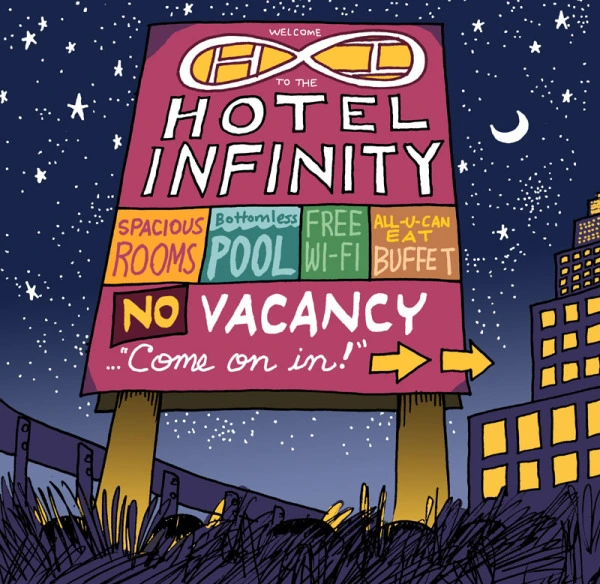Imagine a hotel with an infinite quantity of rooms, each entirely occupied. What do you do when a new visitor arrives? How will the new guest find an empty room in the endless hotel?
The Infinite Hotel Paradox challenges our intuition about the nature of the infinity of natural numbers.
Proposed by German mathematician David Hilbert, the paradox revolves around a hypothetical hotel with a limitless number of rooms, each occupied by a guest.
The paradox unfolds when a new guest arrives, seeking accommodation. Despite the fully occupied hotel, the manager employs a clever strategy. He asks each guest to move to a room with a number one greater than their current room (n+1).
Since the set of natural numbers is infinite, every guest can shift, leaving room for the newcomer.
What if an endless bus with a countably infinite amount of passengers arrives? The wise manager has a solution for this misery. The guest from room 1 will go to room 2, from room 2 to room 4 (2n). The even digits will be occupied and odd empty. You can play with the numbers like this endlessly!
Even though the hotel was seemingly full, it accommodated additional guests.
The Infinite Hotel Paradox delves into the peculiarities of infinite mathematics, challenging our everyday understanding of space and capacity. It's a captivating exploration that stretches the boundaries of conventional thinking and reveals the fascinating and sometimes perplexing aspects of infinite sets in mathematics.
Resources:






Comments